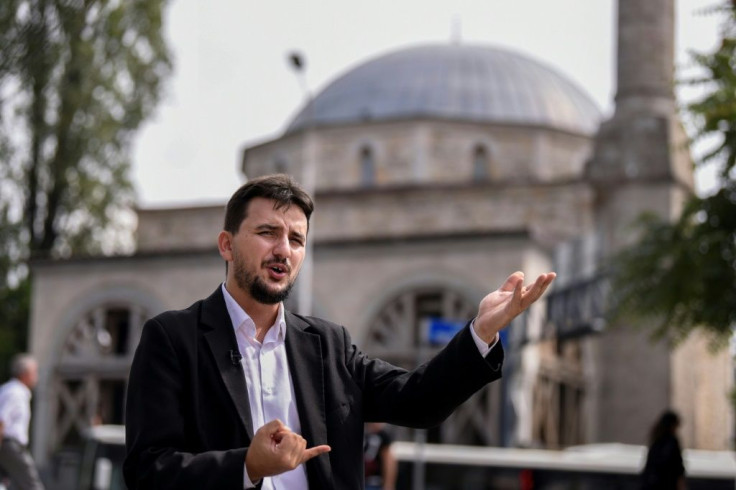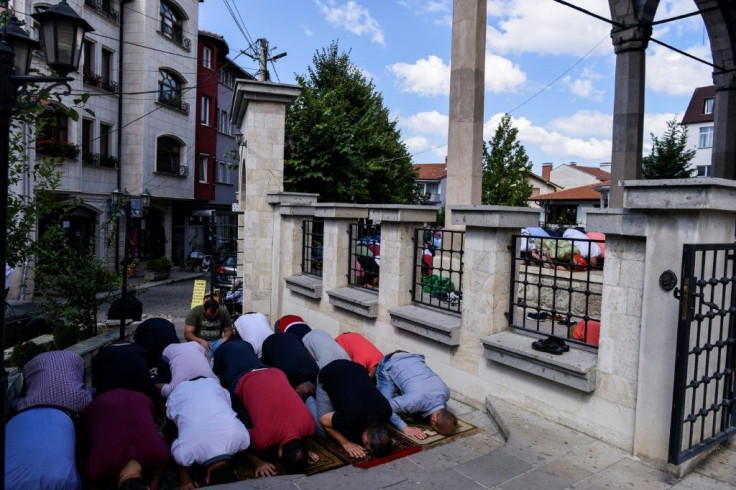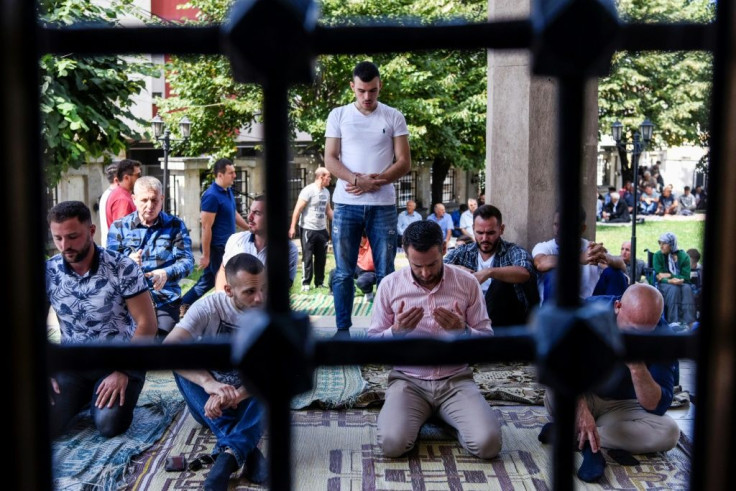Darwin, Islam: Kosovo Imam Expelled For Accepting Both

When not leading prayers in his village mosque in western Kosovo, imam Drilon Gashi was scribbling some unorthodox thoughts on social media -- like his belief in the theory of evolution.
Eventually, the embrace of both Islam and Darwinism cost him his job.
The 31-year-old was unceremoniously expelled from his post by top clergy last month, in what he says is evidence of the growing threat to Kosovo's traditionally moderate brand of Islam.
"Living creatures are created by evolution, but this evolution is led by God," Gashi told AFP of his theory of how Islam and science can work in tandem.
"Science reveals natural phenomena as God created them," he added.
The political future of Kosovo, a young and troubled democracy on the EU's fringe, will be decided in a general election this Sunday -- the fourth since the former Serbian province declared independence in 2008.
But behind the headlines is a different battle for the soul of its dominant faith.
Embracing the theory of evolution would not seem that unusual in Kosovo, whose population of 1.8 million has long been known for its moderate flavour of Islam.
More than than 90 percent of Kosovars identify as Muslim, according to the 2011 census.
Yet alcohol flows freely and abundantly, the people are famous for an ardent love of all things American, and most do not wear religious dress.
This identity has shifted over the past two decades, however, with a religious revival in the late 1990s opening a schism between traditional practitioners and a new wave of imams trained abroad.

After the 1998-99 independence war with Serbia, an influx of Gulf charity money built hundreds of mosques in Kosovo, spread new teachings and gave imams scholarships to study abroad in places like Saudi Arabia and Egypt.
'Modern opinions'
Gashi was one of those beneficiaries, studying in Medina.
But he didn't take to the ultra-conservative doctrine practiced there, and the religious establishment did not like his "modern opinions", he told AFP.
Back in Kosovo, whose Muslim roots date back to Ottoman rule, he took up his mandate in a new, Dubai-funded mosque in Vitomirice, a village of around 5,000 people.
On social media and in comments to the local press, he aired his controversial views.

For the Islamic Community of Kosovo (BIK), the top clerical body, this constituted a "gross violation".
"His principles are contrary to the principles of Islam and our internal regulations," Ahmet Sadriu, a BIK spokesperson, told AFP after his expulsion in September.
Globally, views vary on Darwin's theory in the Muslim world. Some scholars say the Koran is less explicit on creation than the Bible's book of Genesis.
Xhabir Hamiti, a professor of Islamic studies, said Gashi's beliefs may be controversial but "it would be better and more useful if we had a debate" on the topic in Kosovo.
For Gashi's fans, the sacking was the latest sign of a shrinking space for moderates.
"Congratulations Drilon! You know far more than these ignorant and conservative religious representatives," one Facebook user wrote in support.
Radicalisation
Visar Duriqi, a journalist who covers religious affairs, says he personally found the imam's views on evolution a step too far.
But he drew a contrast between Gashi's treatment and support given by the Islamic Community to some radical imams accused of recruiting jihadists to Syria and Iraq.
The Islamic Community "is not tough at all with imams who were investigated" on terrorism charges, and they continue to "keep the most radical imams in the most influential mosques", he said.
Kosovo's role as a breeding ground for extremism emerged several years ago, when it became Europe's highest per-capita contributor of jihadists to foreign conflicts.
Of 400 Kosovar citizens who went abroad, around 70 were killed and 200 are estimated to have returned.
More than 50 people, including 10 well-known imams, have been prosecuted on terrorism-related charges in recent years.
While at least one was sentenced to 10 years in jail, others were acquitted, including the former imam of Pristina's Grand Mosque, who is now teaching Islamic law.
As Kosovo authorities juggle how to crush the extremist fringe and de-radicalise returnees, a debate continues about the place of religion in society.
The secular government has for instance held a ban on headscarves for civil servants and in schools, despite cries of Islamophobia.
Gashi, for his part, is not sure he sees a future for himself in Kosovo any more.
He recently updated his Facebook profile, changing his status to "jobless".
© Copyright AFP 2024. All rights reserved.





















